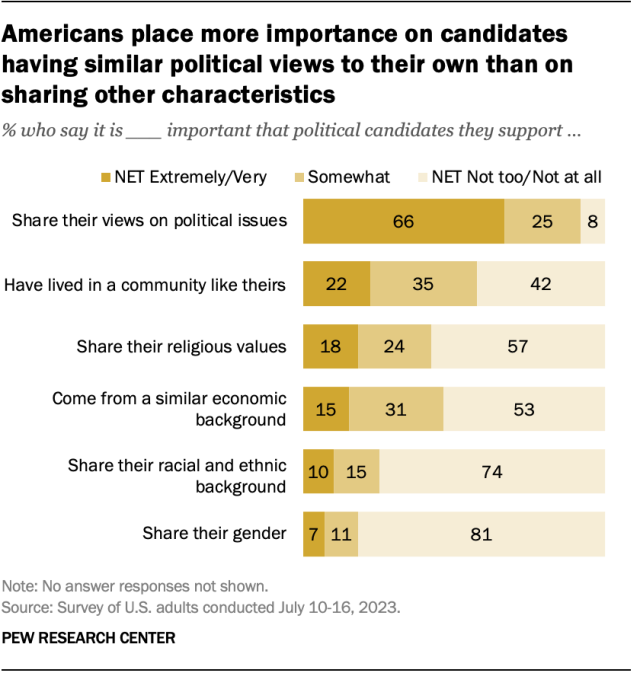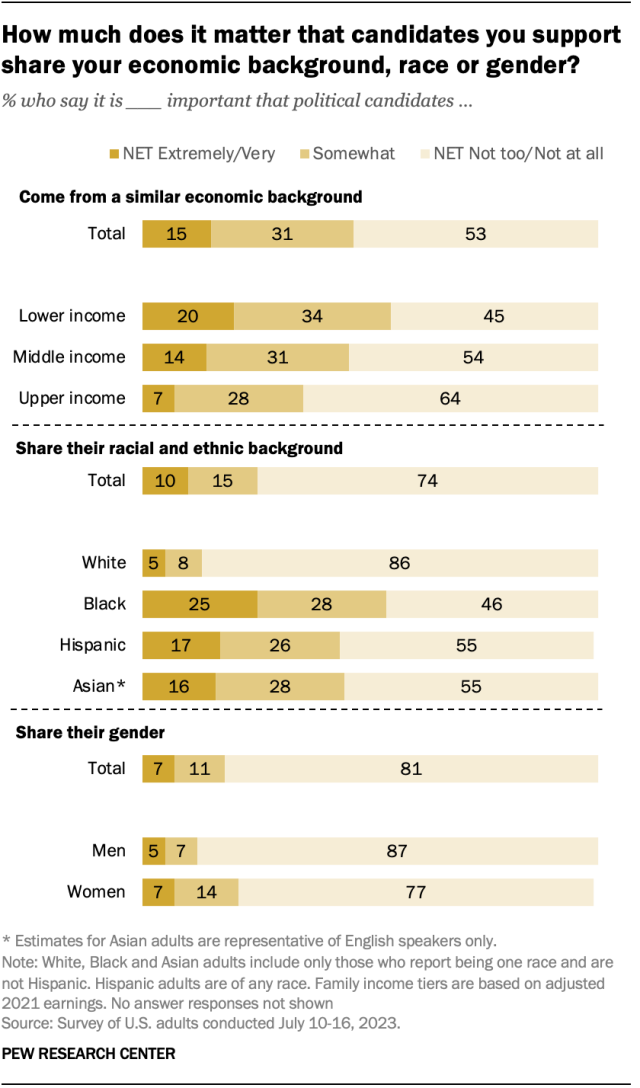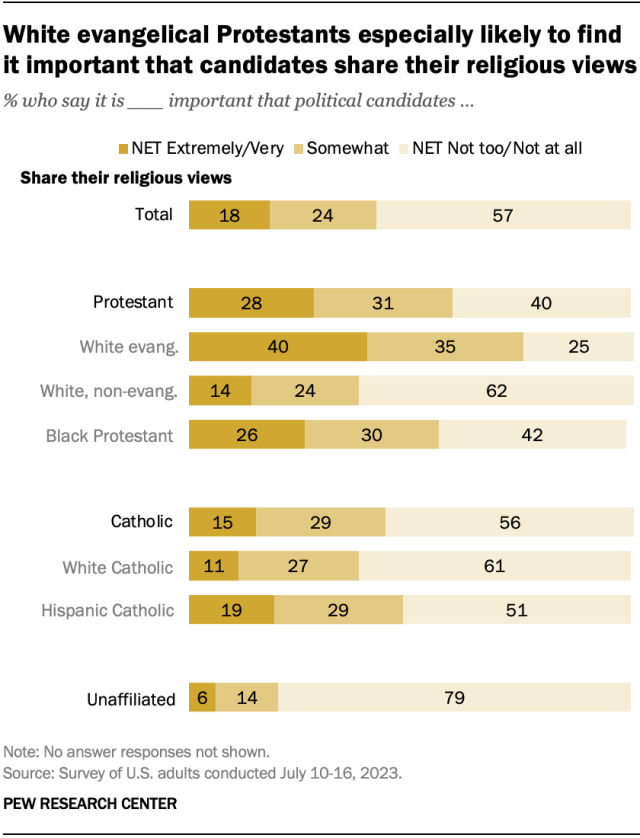When Americans think about the candidates they support, they assign far more importance to shared political beliefs than to other shared characteristics such as religion, racial and ethnic background, and gender.

However, the importance placed on these other characteristics varies substantially across demographic groups, according to a July Pew Research Center survey.
Overall, 66% of U.S. adults say it is extremely or very important that candidates share their views on political issues. And majorities across nearly all demographic and political groups view this as extremely or very important.
By contrast, no more than a quarter of Americans say it’s extremely or very important that candidates share each of the other five characteristics asked about in the survey: living in a community like theirs, sharing their religious values, coming from a similar economic background, sharing their racial or ethnic background, and sharing their gender. In fact, just 39% of Americans consider sharing any of these characteristics to be extremely or very important in candidates they support.
Pew Research Center conducted this analysis to understand what shared characteristics Americans find important in political candidates. For this study, we surveyed 8,480 U.S. adults from July 10 to 16, 2023.
Everyone who took part in the current survey is a member of the Center’s American Trends Panel (ATP), an online survey panel that is recruited through national, random sampling of residential addresses. This way nearly all U.S. adults have a chance of selection. The survey is weighted to be representative of the U.S. adult population by gender, race, ethnicity, partisan affiliation, education and other categories. Read more about the ATP’s methodology.
Here are the questions used for this analysis, along with responses, and its methodology.
Still, there are some demographic differences in the perceived importance of some of these factors:
Economic background

Americans with lower incomes are the most likely to say it is important that political candidates share their economic background, while upper-income Americans are least likely to say this.
Two-in-ten lower-income Americans say it is extremely or very important that candidates share their economic background, and roughly a third (34%) say this is somewhat important.
By comparison, just 7% of upper-income Americans say it’s extremely or very important that a candidate they support shares their economic background, while 28% say it’s somewhat important. (Read more about how the Center determines income tiers.)
Race and ethnicity
A quarter of Black Americans say it’s extremely or very important that candidates share their racial and ethnic background, as do 17% of Hispanic Americans and 16% of Asian Americans. About a quarter in each of these groups say this is somewhat important.
By contrast, White Americans are far less likely to say they place importance on candidates sharing their racial and ethnic background. Just 5% of White adults say this is extremely or very important, and only 8% say it’s somewhat important.
Gender
Relatively few women or men place much importance on candidates sharing their gender. But women are more likely than men to say this is at least somewhat important (22% vs. 13%).
Religion

White evangelical Protestants are more likely than Americans in other faith groups to say it’s important that the political candidates they support share their religious values. About three-quarters (74%) say this is at least somewhat important, including 40% who say this is extremely or very important.
A sizable share of Black Protestants also place importance on candidates sharing their religious values: About a quarter (26%) say this is extremely or very important, while 30% say it’s somewhat important.
By comparison, White non-evangelical Protestants are less likely to say this is important: Just 14% say it’s extremely or very important, and 24% say it’s somewhat important.
Explore Americans’ views of the political system
This post draws from our major study of Americans’ attitudes about the political system and political representation conducted July 10-16, 2023. For more, explore:
- The report chapter on Americans’ views about political candidates
- The full report
Among Catholics, 43% find it at least somewhat important that candidates share their religious values. Hispanic Catholics are somewhat more likely than White Catholics to say this (47% vs. 38%).
Those who are religiously unaffiliated are less likely than others to prioritize candidates sharing their religious values. About two-in-ten (19%) say this is at least somewhat important, with just 6% of this group viewing it as extremely or very important.
Note: Here are the questions used for this analysis, along with responses, and its methodology.
